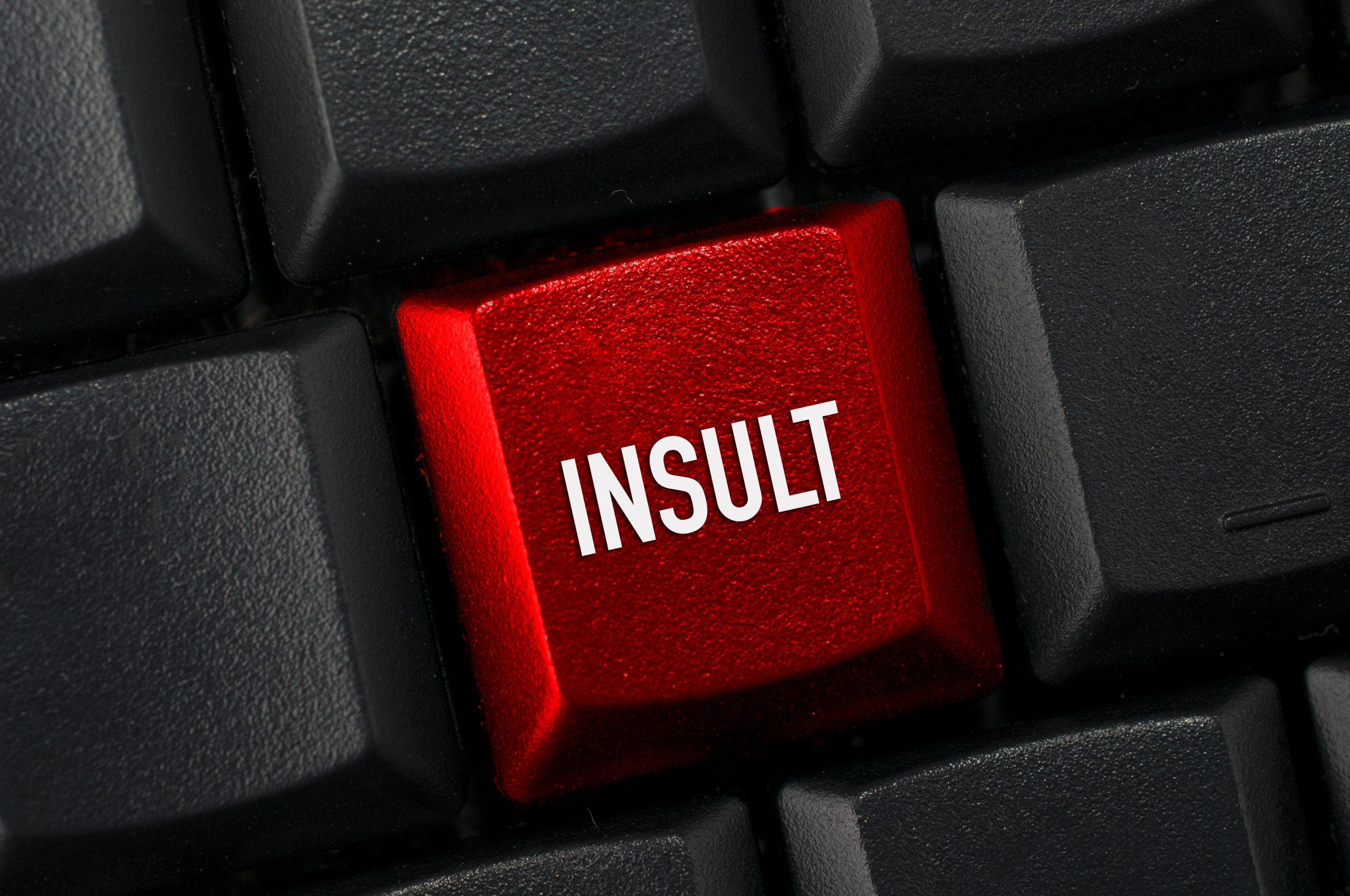
Meta’s Version of Defining the Content of Hate Speech
The phenomenon of hate speech has been receiving immense attention from intergovernmental organizations, governments, and social media platforms.[1] In the last decade, the uprise of the internet provided social media users with platform for expressing opinions and values, doing that with the idea of an alternative reality without any censorship.[2] Consequently, hate speech appeared to spread in the anonymity of the internet in various new forms.[3] Further, with the polarization of political views, platform users started radically expressing their beliefs and opinions on social media.[4]
In the early days of the internet, it was perceived as the last saviour of the freedom of speech,[5] as these companies are not specifically dependent on a political establishment, regime, or government. Many fear that speech regulation serves as a power tool for governments to influence political views and restrict freedom of expression to their benefit.[6] However, unregulated speech violates other vital fundamental human rights and threatens certain communities extensively.[7] Hate speech regulation is a Western concept to assure fundamental rights and is not a novel phenomenon.[8] The topic can be discovered in interdisciplinary research and in the work of scholars from various fields, such as sociology, psychology, law, and communication.[9]
Despite the frequent recurrence of the topic, the term hate speech still lacks a proper universal definition. Meta, specifically Facebook is one of the biggest social media platforms[10] with its close to 3 billion users worldwide[11], therefore, is one of the most significant spaces for online communication and content creation.[12] Considering its importance, this article aims to introduce Facebook’s hate speech definition and its influence on moderating content.
Facebook introduced its community guidelines to tackle and resolve the issue of problematic content sharing on its platform which informs users regarding their rights and obligations when it comes to content creation, providing a safe space for expressing views but still securing other fundamental rights as well.[13] The Community Standards were designed to be tailored to fit international standards and Facebook’s specific interest and needs when it comes to content moderation and removal of content and accounts.[14] The Community Standards of Facebook were published in 2018, emphasizing importance of human rights, diversity and freedom of expression but still highlighting minority opinions as they need specific protection against oppression of their views.[15] To achieve that, Facebook removes, blocks, restricts and deletes content and accounts in reference to incompliance with its community principles.[16]
In Facebook’s Community Standards, hate speech is categorized as objectionable content[17] meaning that its status must be observed according to its context. Facebook justifies restricting freedom of speech with an oxymoron-like statement claiming that limiting this freedom contributes to more free use of voice and opinion due to the fact that people connect easier if “they do not feel attacked on the basis of who they are” as to much freedom creates an environment with intimidation, judgment and exclusion of certain groups of people, even support for offline violence promotion.[18]
According to the platform, a direct attack against people shall be considered hate speech directing certain protected characteristics[19] and emphasizes the human nature of the phenomenon rather than an insult against organizations or institutions as those are rather regarded as defamation[20] and not hate speech. Among protected characteristics race, ethnicity, national origin, disability can also be discovered. Facebook further highlights age, refugees and immigrant but claims to consider only severe attacks as hate speech but further intends to protect characteristics that are not protected such as occupation.[21] Harmful stereotyping is prohibited and considered dehumanizing due to its potential to lead to segregation and even offline violence. Meta introduced a two-tier system detailing what content shall be avoided while posting or commenting on the platform differentiating between more and less severe hate speech categories. However, Facebook adds that in some cases, Community Standards violating content is allowed when it is put in a satirical context, which complicates the applicability of the code of conduct.[22]
However, in practice, Facebook neglected its international duty to monitor and restrict these contents and faced severe legal consequences for indirectly supporting offline violence and hence abused the rights of minority groups on several occasions.[23] Despite signing an EU Code of Conduct to fight illegal hate speech online together with the largest social media platforms, Facebook violated its obligation numerous times[24] and was compelled to resolve such issues and act against disdain and hurtful discourse on its platform.[25]
To conclude, Meta (formerly know as Facebook) created its own definition what is considered hate speech on its platform and intended to formulate it in a straightforward and easily understandable way. However, by trying to concretize the broad definitional concept of hate speech, it complicated applicability of the term even more. Nonetheless, despite all alleged efforts from Facebook, it has been condemned for negligence towards hate speech in certain cases hence indirectly providing support for offline violence.
Dorina BOSITS is a law student at the Széchenyi István University of Győr, Hungary, and an international finance and accounting graduate of the University of Applied Sciences of Wiener Neustadt, Austria. The main area of her research includes freedom of speech, digitalization, data protection, and financial law. She is a student at the Law School of MCC and a member of ELSA Győr.
[1] Paz, María Antonia, Montero-Díaz, Julio, Moreno-Delegado, Alicia: Hate Speech: A Systematized Review. In. Sage. October-December 2020. https://journals.sagepub.com/doi/pdf/10.1177/2158244020973022 p.1.
[2] Perera, Suresha, Nadeera Meedin, Caldera, Maneesha, Oerera, Indika, Ahangama, Supunmali: A comparative study of the characteristics of hate speech propagators and their behaviours over Twitter social media platform. In. Heliyon. Volume 9. No. 8. August 2023. https://www.ncbi.nlm.nih.gov/pmc/articles/PMC10457529/
[3] Paz, María Antonia, Montero-Díaz, Julio, Moreno-Delegado, Alicia: Hate Speech: A Systematized Review. In. Sage. October-December 2020. https://journals.sagepub.com/doi/pdf/10.1177/2158244020973022 p.5
[4] Obrebska, Monika: Contempt Speech and Hate Speech: Characteristics, Determinants and Consequences. In. Annales Universitatis Mariae Curie-Sklodowska Lublin. Volume. 33. No. 3. 2020. p.12.
[5] Lassányi Tamás: A véleménynyilvánítás szabadsága az Interneten. In. Az információs társadalom felé. Tanulmányok és hozzászólások. In. Replika Kör, 2001. Budapest, p.112.
[6] Bennett, John T.: The Harm in Hate Speech: A Critique of the Empirical and Legal Bases of Hate Speech Regulation. In. Hastings Constitutional Law Quarterly. Volume 43. No. 3. Spring 2016. https://repository.uclawsf.edu/cgi/viewcontent.cgi?article=2017&context=hastings_constitutional_law_quaterly p.522.
[7] Howard, Jeffrey W.: Free Speech and Hate Speech. In. Annual Review of Political Science. Volume 22. May 2019. https://doi.org/10.1146/annurev-polisci-051517-012343 p.93.
Paz, María Antonia, Montero-Díaz, Julio, Moreno-Delegado, Alicia: Hate Speech: A Systematized Review. In. Sage. October-December 2020. https://journals.sagepub.com/doi/pdf/10.1177/2158244020973022 p.1.
[9] Paz, María Antonia, Montero-Díaz, Julio, Moreno-Delegado, Alicia: Hate Speech: A Systematized Review. In. Sage. October-December 2020. https://journals.sagepub.com/doi/pdf/10.1177/2158244020973022 p.1.
[10] Kotsasakis, Rigas, Vrysis, Lazaros, Vryzas, Nikolaos, Saridou, Theodora, Matsiola, Maria, Veglis, Andreas, Dimoulas Charalampos: A web framework for information aggregation and management of multilingual hate speech. In. Heliyon. Volume 9 No. 5. May 2023. https://doi.org/10.1016/j.heliyon.2023.e16084 p.3.
[11] Nave, Eva, Lane, Lottie: Countering online hate speech: How does human rights due diligance impact terms of services? In. Computer Law & Security Review. Volume 52. November 2023. https://doi.org/10.1016/j.clsr.2023.105884 p.12.
[12] Kotsasakis, Rigas, Vrysis, Lazaros, Vryzas, Nikolaos, Saridou, Theodora, Matsiola, Maria, Veglis, Andreas, Dimoulas Charalampos: A web framework for information aggregation and management of multilingual hate speech. In. Heliyon. Volume 9 No. 5. May 2023. https://doi.org/10.1016/j.heliyon.2023.e16084 p.3.
[13] Meta: Facebook Community Standards. 2023. Accessed on 28 July 2023 https://transparency.fb.com/policies/community-standards/
[14] Beteman, Jon, Thompson, Natalie and Smith, Victoria: How Social Media Platforms’ Community Standards Address Inflluence Operations. 2021. In. Carnegie Endowment for International Peace. Published on 1 April 2021. https://carnegieendowment.org/2021/04/01/how-social-media-platforms-community-standards-address-influence-operations-pub-84201
[15] Meta: Our Commitment To Safety. 2020. In. Facebook Business. Accessed on 28 July 2023. https://www.facebook.com/business/news/our-commitment-to-safety#2016
[16] Nagy Krisztina: Facebook files – gyűlöletbeszéd törölve? A közösségi médiaplatformok tartalomellenőrzési tevékenységének alapjogi vonatkozásai. In. Pro Future, 2018, No. 2., p.115.
[17] Meta: Facebook Community Standards. 2023. Accessed on 28 July 2023 https://transparency.fb.com/policies/community-standards/
[18] Meta: Hate Speech – Policy Racionale. In. Transparency Center. Accessed on 21 February 2024. https://transparency.fb.com/policies/community-standards/hate-speech
[19] Meta: Hate Speech – Policy Racionale. In. Transparency Center. Accessed on 21 February 2024. https://transparency.fb.com/policies/community-standards/hate-speech
[20] Spaic, Aneta, Nolasco, Claire, Novovic, Milos: Decriminalization of defamation – The Balkans Case a temporary remedy or a long term solution? In. International Journal of Law, Crime and Justice. Volume 47. December 2016. https://doi.org/10.1016/j.ijlcj.2016.05.002 p.22.
[21] Meta: Hate Speech – Policy Racionale. In. Transparency Center. Accessed on 21 February 2024. https://transparency.fb.com/policies/community-standards/hate-speech
[22] Meta: Hate Speech – Policy Racionale. In. Transparency Center. Accessed on 21 February 2024. https://transparency.fb.com/policies/community-standards/hate-speech
[23] Nave, Eva, Lane, Lottie: Countering online hate speech: How does human rights due diligence impact terms of services? In. Computer Law & Security Review. Volume 52. November 2023. https://doi.org/10.1016/j.clsr.2023.105884 p.2.
[24] Nave, Eva, Lane, Lottie: Countering online hate speech: How does human rights due diligence impact terms of services? In. Computer Law & Security Review. Volume 52. November 2023. https://doi.org/10.1016/j.clsr.2023.105884 p.11.
[25] Kar, Purbani, Swapan, Debbarma: Sentimental analysis & Hate speech detection on English and German text collected from social media platforms using optimal feature extraction and hybrid diagonal gated recurrent neural network. In Engineering Applications of Artificial Intelligence. Volume 126. Part D. 2023. https://doi.org/10.1016/j.engappai.2023.107143 p.1.








